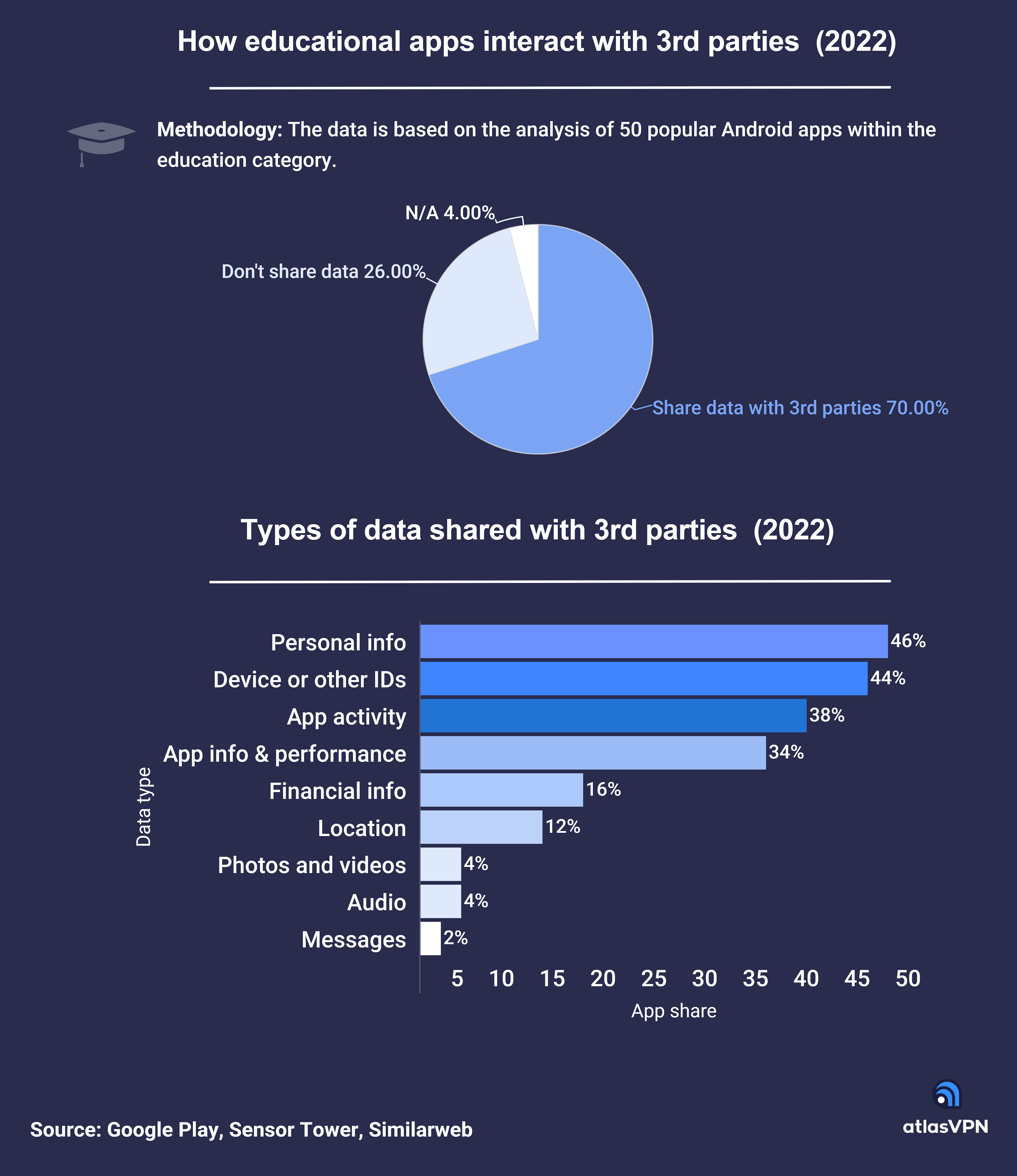Any app that you use would need to collect at least some of your data because of the fact that this is the sort of thing that could potentially end up helping them optimize their services based on your needs. However, some apps take a bit too heavy handed of an approach when it comes to the collection of personal data from their users. This is an especially concerning trend among educational apps since many of them are used by children.
Atlas VPN recently put out a report that details the data collection of various educational apps that are available for Android users. With all of that having been said and now out of the way, it is important to note that 92% of educational apps that are available on the Google Play Store collect data, and the worst offenders are HelloTalk as well as Google’s own Classroom app.
Both HelloTalk and Google Classroom collect around 24 data points from users. Tying for second are ClassDojo along with the popular language learning app Duolingo. These apps collect 18 data points each which puts them firmly in second place with all things having been considered and taken into account.
The third place is currently occupied by MasterClass which collects seventeen data points in total. Following that we have Seesaw in fourth place with this app collecting 15 data points. The final four positions on this list are all occupied by apps that collect fourteen data points, namely Canvas Student, Remind, ABCmouse and Brainly.
Users should note that the more segments that an app collects data for, the more privacy violations it has likely been committing. That is something that can impact user privacy in the long run, but in spite of the fact that this is the case there doesn’t seem to be much being done to mitigate its negative effects.
90% of educational apps collect basic information like email addresses, phone numbers, physical addresses as well as various other data that falls into this category. That makes this the most widely used data segment for educational apps.
The next most widely used data category involves identifiers. These include things like app performance information, crash logs and the like. 88% of apps harvest this data, and 78% also delve into usage and search history along with looking at what other apps a user might have installed. 42% of educational apps look at extremely private data such as the photos that a user might have on their device. Financial data is also mined by around 40% of apps, though this might be because they need to monitor payment methods to ensure that no payments are delayed or missed.
Worryingly, 36% of apps that focus on providing educational content and features also take data from users that can pinpoint their exact location. 30% of educational apps also monitor user audio, 22% check out the text messages that a user might receive on their primary device, and 16% also mine data pertaining to documents on said device. Interestingly, 2% of educational apps also take data that would reveal the web browsing history of users which is an extreme violation of their right to personal privacy.
Read next: Delete these business apps right now if you care about your online privacy
by Zia Muhammad via Digital Information World


No comments:
Post a Comment